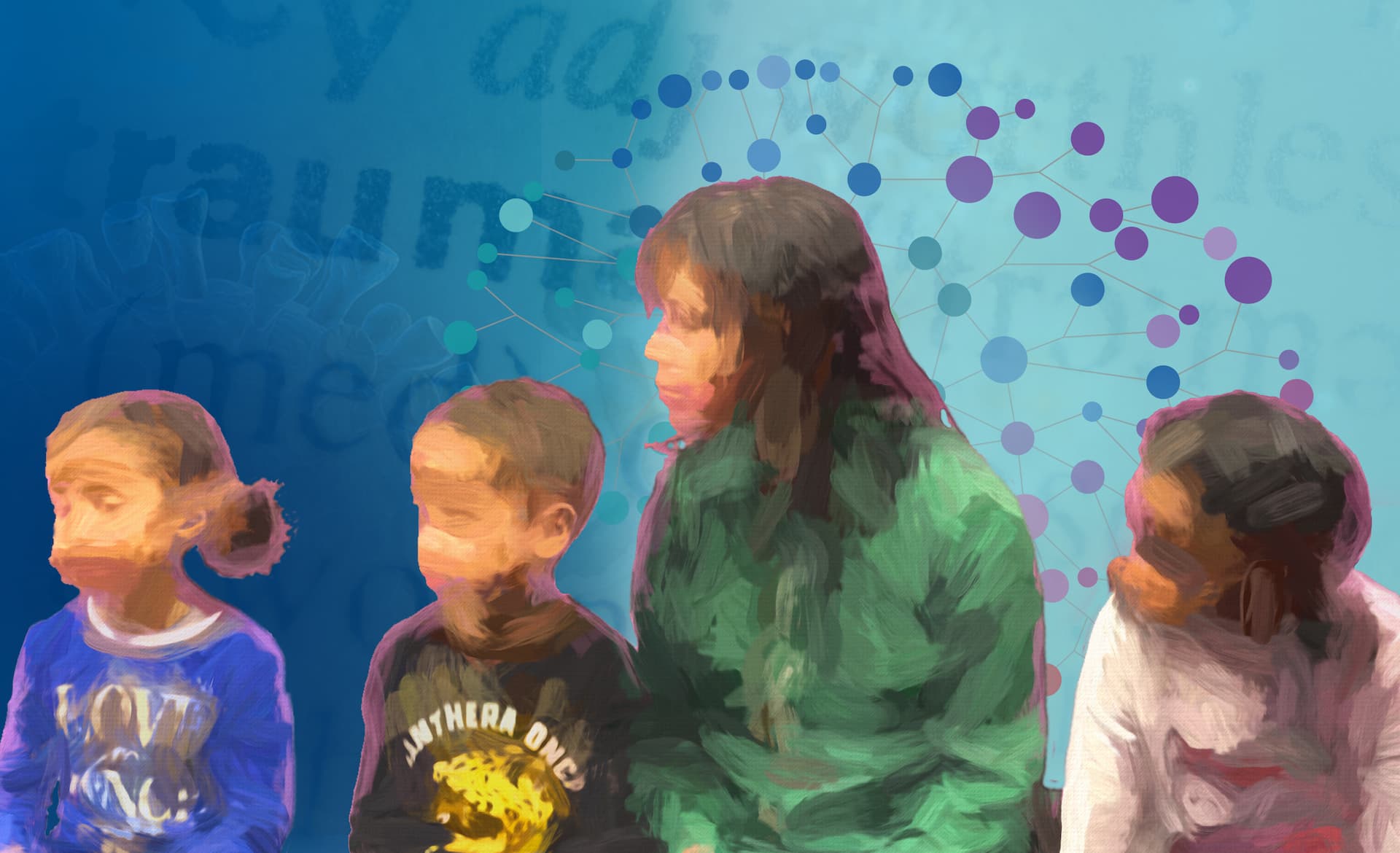
Managing a post-pandemic mindset
The Floating Hospital devotes resources to a patient population still reeling from the impact of the Covid-19 pandemic
Since 1949, May has been designated Mental Health Awareness Month in the United States. The annual observance raises awareness of mental illness—also called behavioral health—through support, education and advocacy.
But at The Floating Hospital, May is no different from any other month when it comes to the continuum of care we provide to people living with mental illness.
Our behavioral health department has long treated families and individuals experiencing emotional management issues from depression and anxiety to trauma brought on by domestic violence and other forms of abuse. Indeed, the very circumstances under which people find themselves living in homeless shelters are substantial stressors: Throw a public health crisis like Covid-19 on top of that and you have a mental-health crisis so amplified that health experts called it the “next wave” of the pandemic.
During the height of the pandemic, the New York State Health Foundation found 70% of New Yorkers reported an increase in anxiety and stress—at a time when weekly calls to the city’s mental health hotline increased 20%. And that was exacerbated among people experiencing homelessness. Generous grants from the van Ameringen Foundation and the United Nations Federal Credit Union Foundation supported our work to meet the needs of families who are experiencing amplified levels of anxiety about Covid—from ongoing uncertainty of the coronavirus and its variants to vaccine hesitancy.
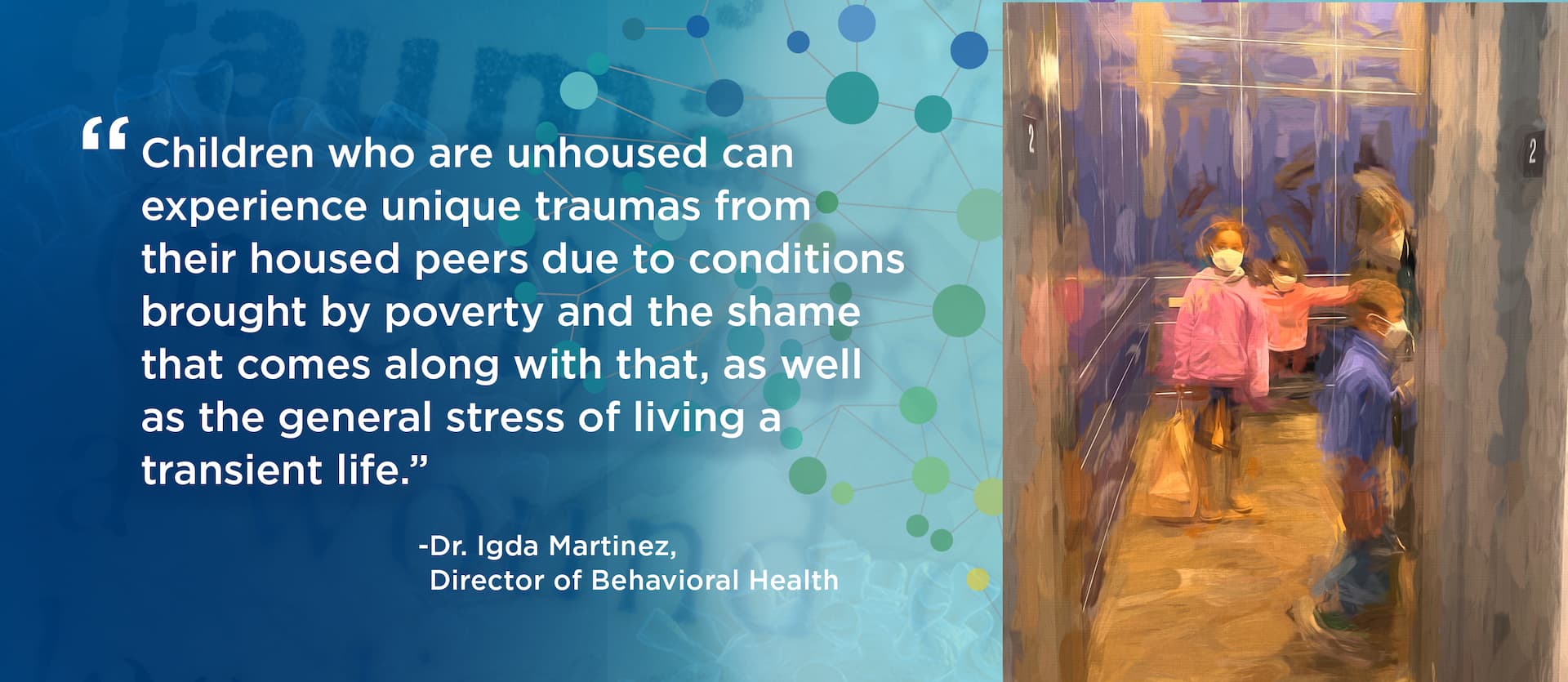
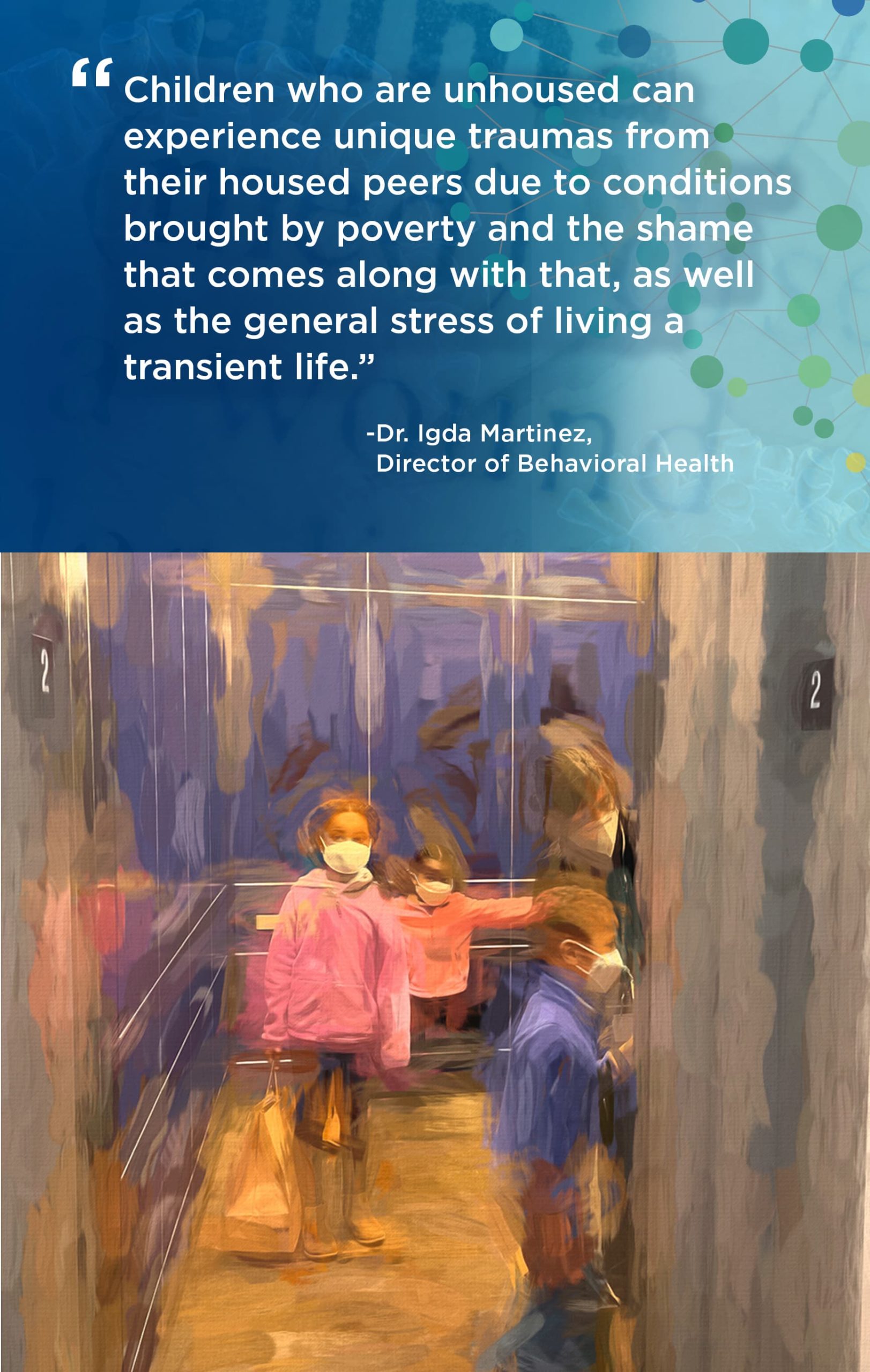
“We saw entire families needing extra support during the pandemic, due to their isolation in remote shelters and the general uncertainty of what was going on,” said Dr. Igda Martinez, The Floating Hospital’s director of behavioral health.
The next phase of our work in this area will focus on a growing concern among health professionals: teens and children experiencing heightened anxiety.
“Children and teens who are unhoused can experience unique traumas from their housed peers due to conditions brought by poverty and the shame that comes along with that, as well as the general stress of living a transient life,” says Dr. Martinez. “Now we are seeing school-age youth experiencing difficulty adjusting after a couple of years that disrupted their lives.
Emergency room visits for mental-health issues increased 30% for children ages 12-17 and 24% for ages 5-11 last year. For kids living in Black and brown neighborhoods, and in homeless shelters where a lack of internet and other resources thwarted remote learning, the stressors were great: prolonged isolation, erratic learning conditions, housing insecurity and systematic racism were leading causes of distress. Many who experienced a Covid-related death are suffering from unresolved grief. The math was clear: kids experiencing homelessness fell behind their housed peers—and significantly. Advocates for Children of New York reported that students experiencing homelessness had more difficulty accessing an education than their housed peers in 2021, with the lowest attendance rates than any other student group by 11 to 14 percentage points.
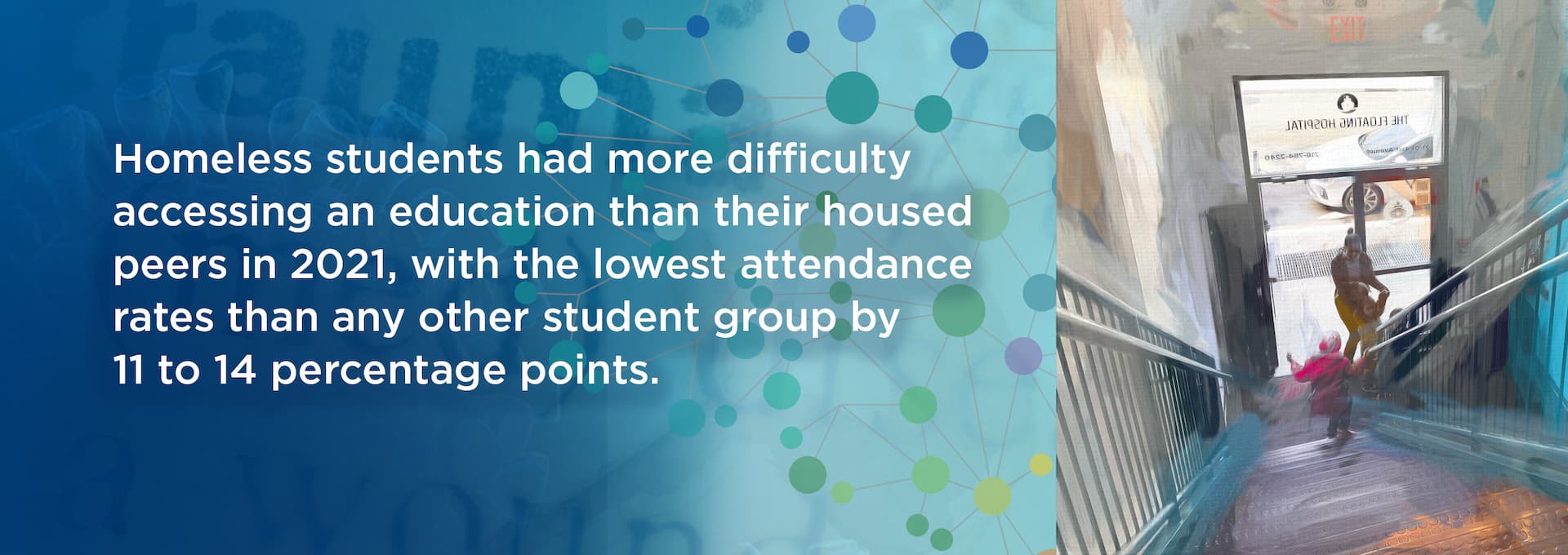
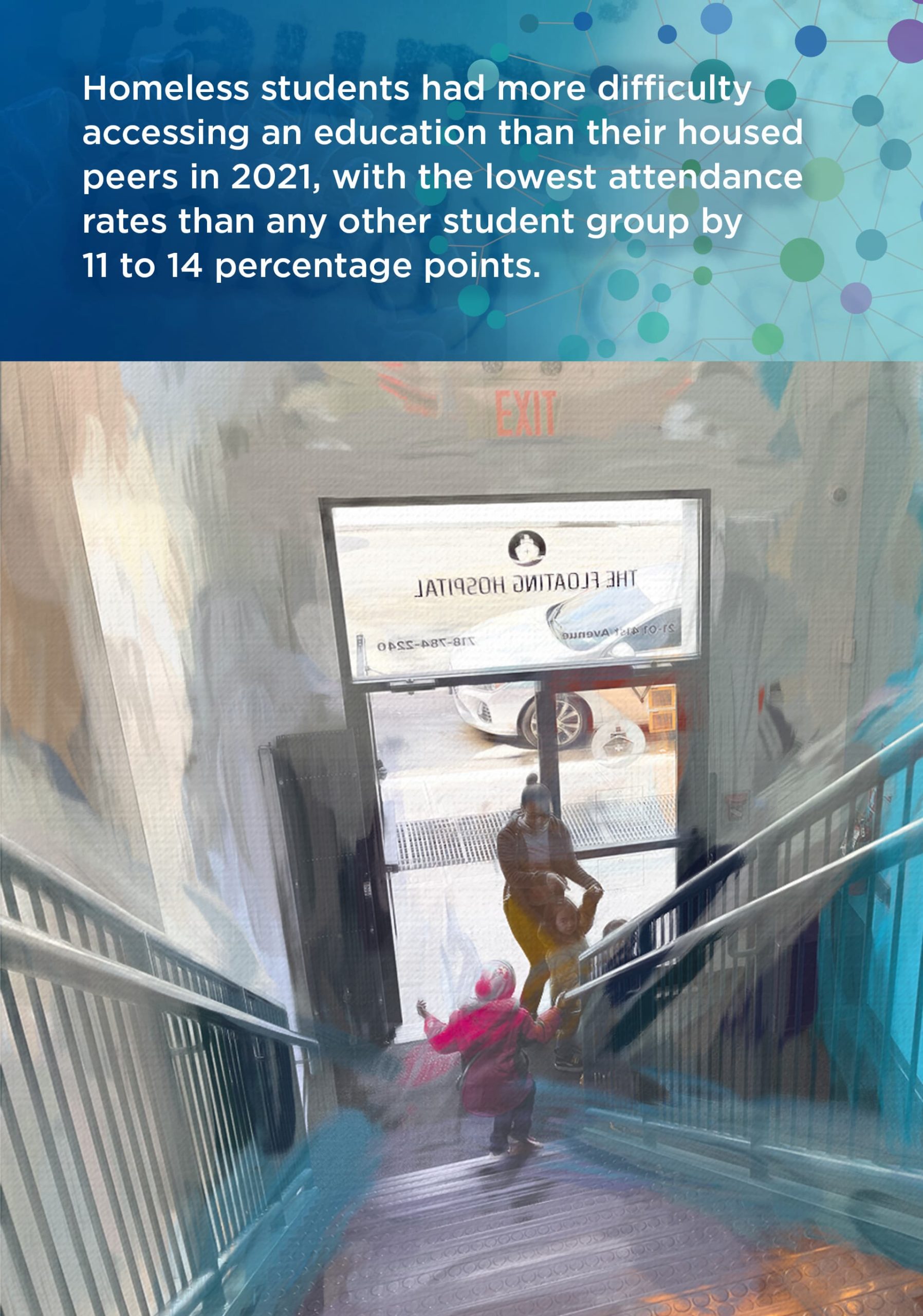
To help kids process their experiences around their lost years, The Floating Hospital will seek support for staff training in Eye Movement Desensitization and Reprocessing (EMDR), an evidence-based, trauma-informed therapy effective for treating Post-Traumatic Stress Disorder (PTSD), and especially suited for young people who can’t always articulate the source of their anxiety and for whom talk therapy may not be effective.
“The pandemic may be subsiding but the general feeling of anxiety is not,” says Dr. Martinez.
—Lana Bortolot
Share This Story, Choose Your Platform!
Categories
Tags
The Floating Hospital provides high-quality healthcare to anyone who needs it regardless of race, ethnicity, religion, gender, immigration or insurance status, or the ability to pay. By providing unrestricted medical care in tandem with health education and social support to vulnerable New York City families, The Floating Hospital aims to ensure those most in need have the ability to thrive, not just survive.


